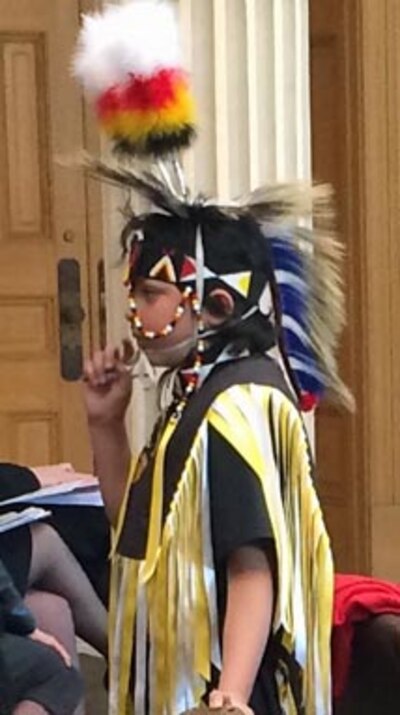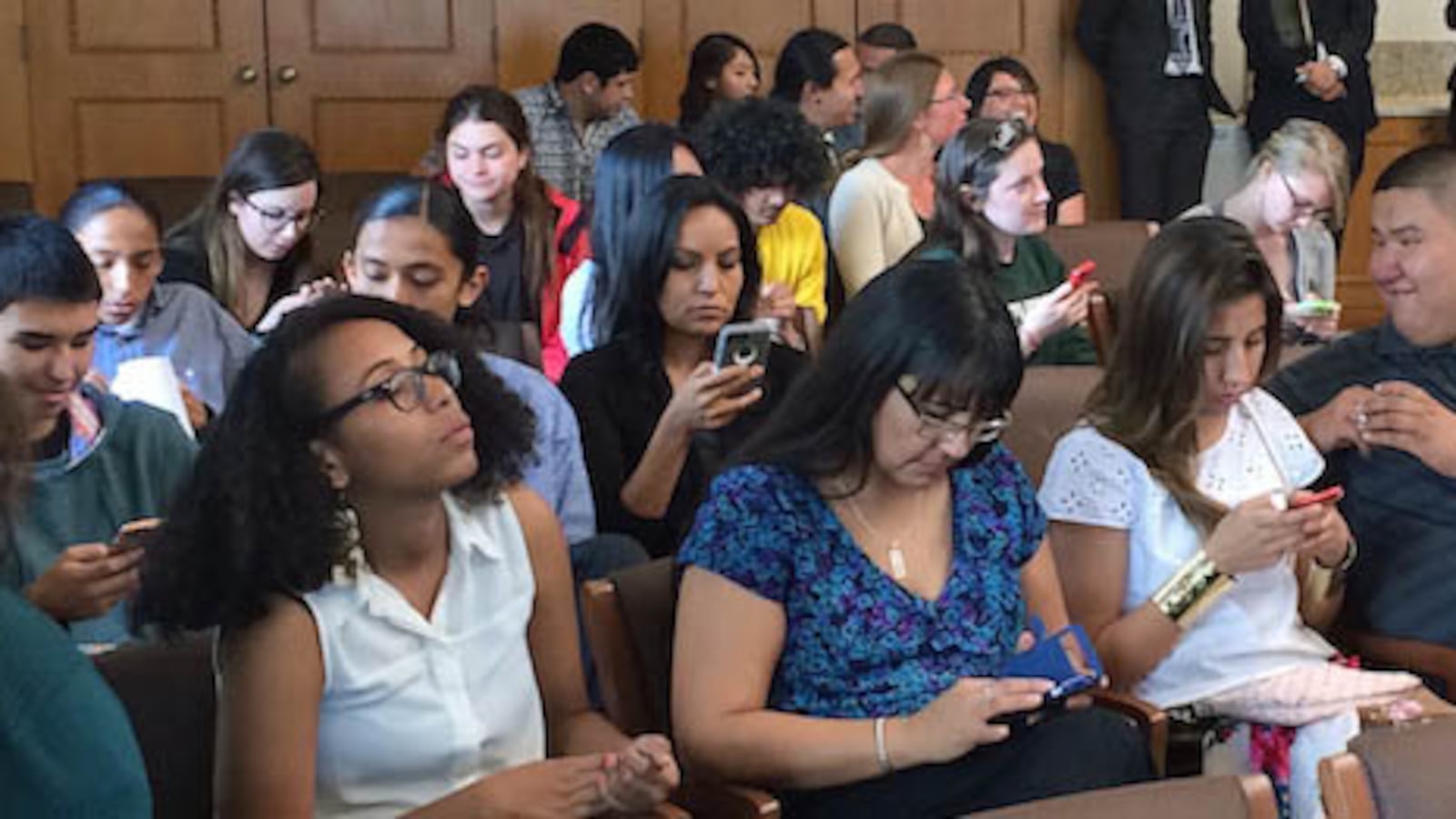“We are not some people you can just make fun of,” Lakewood student Jerico Lefthandbull told the House Education Committee Monday afternoon, testifying in favor of a bill that would require schools to get state permission to use American Indian names or images as school mascots.
Many other witnesses made the same point – that American Indian mascots are damaging for Native American students — during a hearing that lasted more than three hours. But Lefhandbull, wearing his dance regalia from last weekend’s Denver March Powwow was the most succinct.
The committee passed House Bill 15-1165 on a 6-5 vote, with Democrats in favor and Republicans voting no.
The bill would create a subcommittee of the Colorado Commission on Indian Affairs that would have the power to rule on schools’ and colleges’ Indian names and mascots, including existing ones. If the subcommittee rejected a name, a school would have two years to find a new mascot or face fines of $25,000 a month.
According to bill cosponsor Rep. Jovan Melton, D-Aurora, some 38 Colorado schools have Indian names or mascots. A few, like Arapahoe High School in Centennial, have agreements with tribes that sanction use of the name. Other school names have generated controversy, like La Veta’s “Redskins.”

Monday’s hearing had a more youthful air than most legislature hearings. Large numbers of students were in the audience, and three panels of students from Denver’s East High School and a group called Mile High Unity testified in favor of the bill.
Much of the testimony focused the negative impact of mascots on American Indian students and their self-image.
“These mascots do not honor us but instead bring to mind negative thoughts,” said Elicia Goodsoldier of Firestone, who has studied the issue.
Melton picked up on the same theme, saying, “No one can tell me they’re honoring anybody when they say ‘redskin’ or ‘savage.’”
School board members from the Strasburg and Cheyenne Mountain districts opposed the bill, saying mascot decisions should be made at the local level and that changing names would be costly for hard-pressed school districts. Both districts use the nickname “Indian.”
Prime sponsor Rep. Joe Salazar, D-Thornton, and Melton got themselves temporarily crosswise with fellow Democrats with a slideshow they used to present the bill. The slides included caricatures of black, Hispanic, Asian and Jewish “mascots” labeled with offensive names.
That deeply offended Rep. Rhonda Fields, D-Aurora, who said, “I have a hard time seeing the N-word up there.”
Chair Rep. John Buckner, D-Aurora, asked Salazar and Melton to stop showing the slides. Melton, Fields and Buckner are black.
The bill next goes to the House Appropriations Committee, where its $200,000 price tag might be an issue, given that the 2015 session has little money to spend on new programs. The funding would be used for grants to school districts to help pay the costs of converting to a new mascot – things like repainting gym floors.
If the bill passes the House it may not get far in the Senate, where majority Republicans generally don’t like what they see as “politically correct” measures like HB 15-1165.
Get a more detailed summary of the bill here.
Committee kills educational savings accounts bill
After more than an hour of questions and testimony, the House Education committee voted 6-5 to kill House Bill 15-1196, a proposal that would have created state-funded savings accounts that parents could have used to pay for education at any school – kind of an electronic voucher system.
The bill was sponsored by Rep. Paul Lundeen, former chair of the State Board of Education and a tireless advocate for what he sees as educational innovation.
The Monument Republican said, “We need to move beyond a system of calendars and clocks set to the annual calendar of an agrarian society.” His proposed C-FLEX program “is not a voucher, it’s an educational savings account.”
The bill proposed to establish personal education savings accounts funded by the state and maintained by a third-party administrator that parents could use to buy educational services wherever they chose.
The program would have given preference to special-needs and gifted students but also would have been open to the first 5,000 other families that applied.
Witnesses representing the Colorado Association of Schools Board, Colorado Association of School Executives, and Colorado Education Association opposed the bill, saying it would syphon badly needed funding from public schools.
Jon Paul Burden, director of exceptional student services for the Windsor school district, said the program’s funding structure wouldn’t be sufficient to pay costs for special education students.
And Cindra Barnard, with the Douglas County group Taxpayers for Public Education, called the bill “just another privatization scheme.”
Democrats killed the bill on a party-line vote. The panel’s senior Republican, Rep. Jim Wilson of Salida, said he voted for the bill to keep the discussion going, but he noted, “I’m not a big fan of a voucher system, coming from a small district.”

